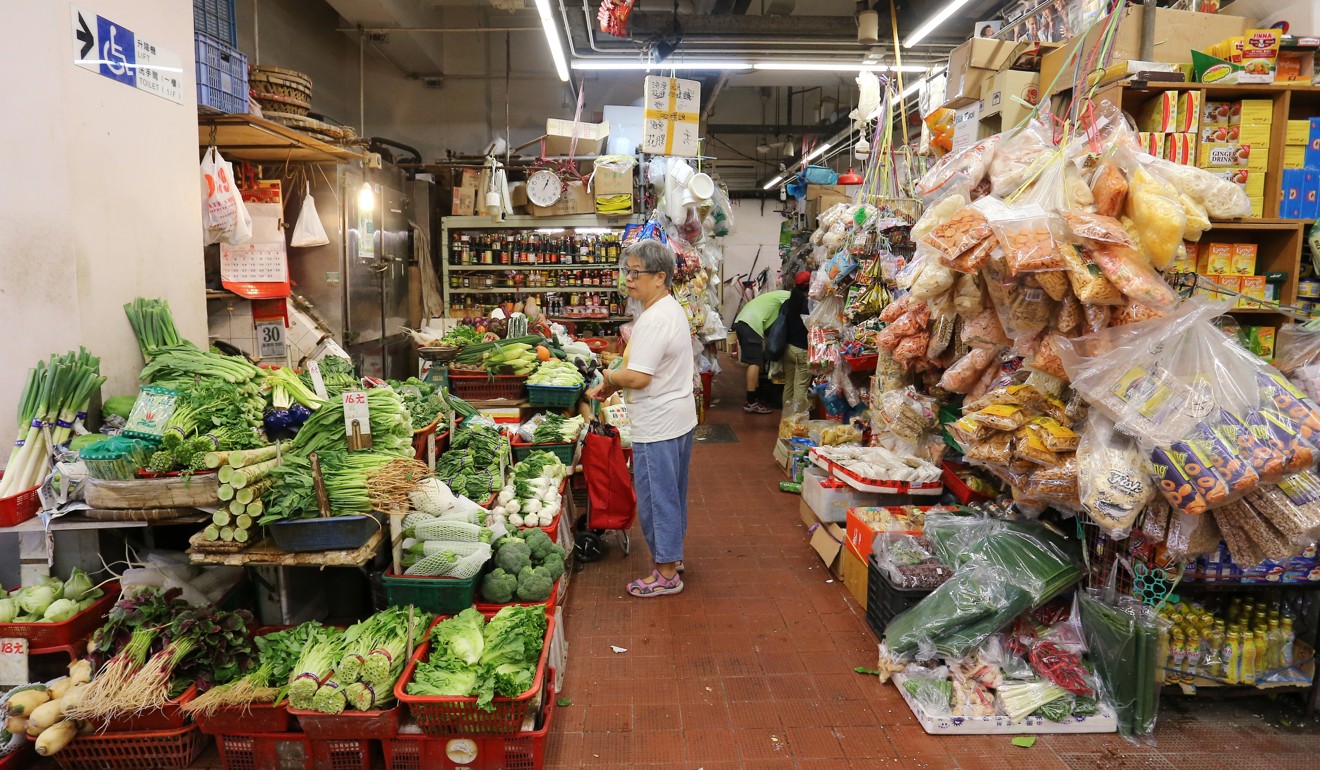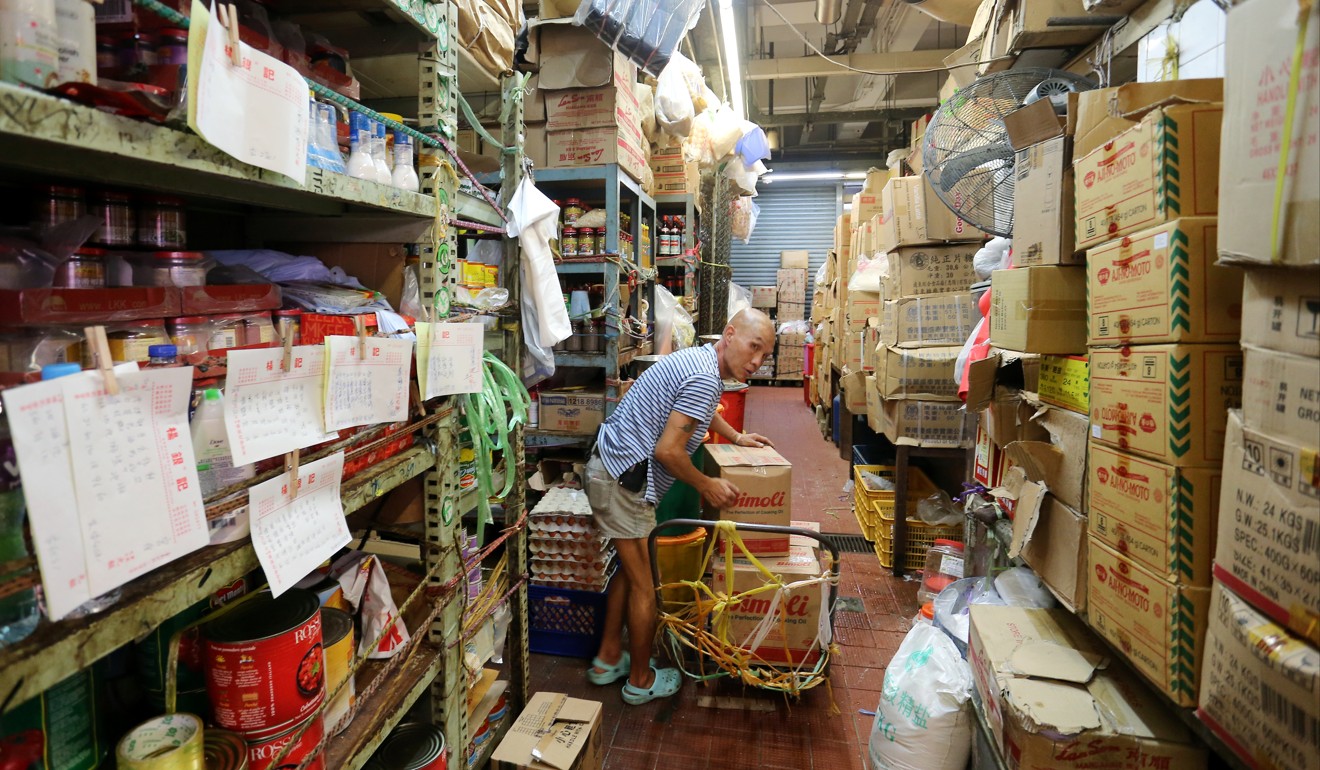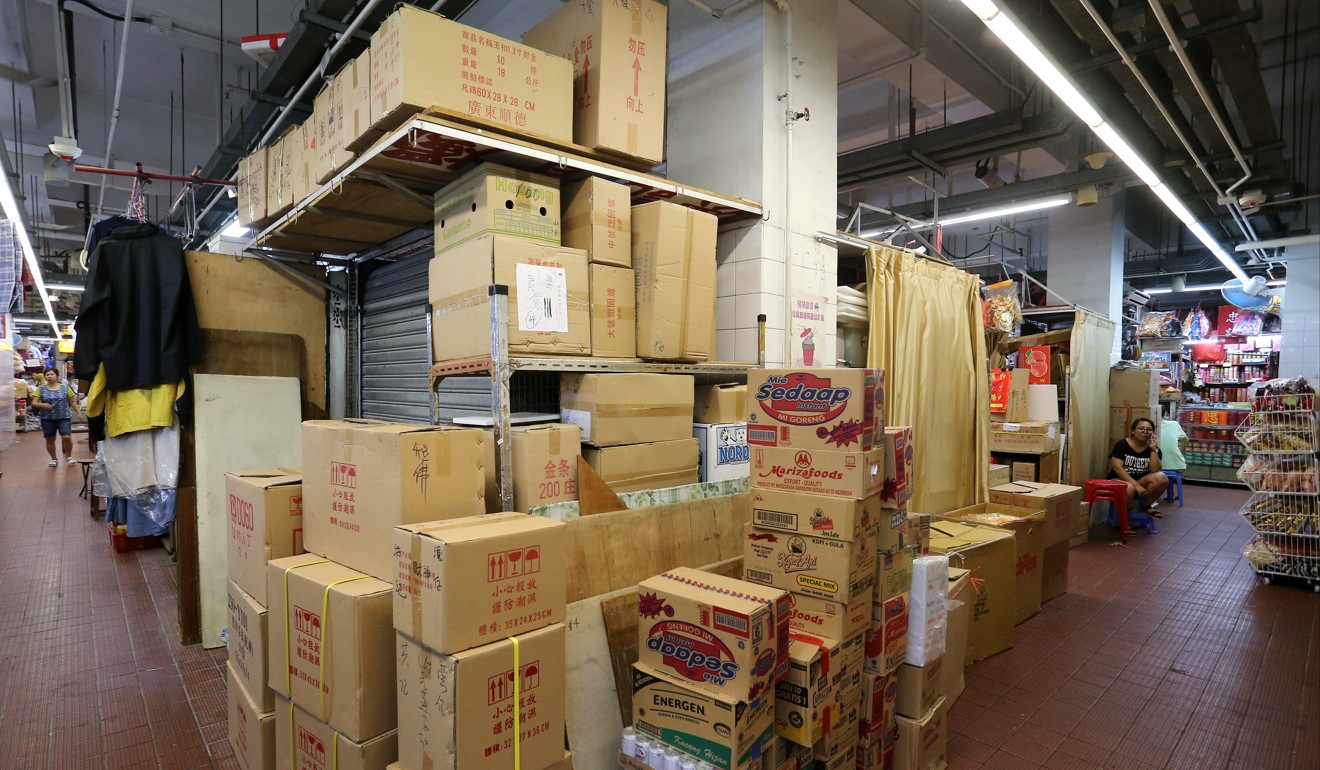
Hong Kong food and hygiene department slammed for poor supervision of city’s wet markets
Ombudsman finds host of issues relating to rent differences, problems with the price of goods and a lack of overall supervision of stalls
Hong Kong’s Ombudsman wants the city’s Food and Environmental Hygiene Department to shape up on supervising wet markets, after finding a host of problems that could affect consumers.
Topping the fix-it list are rental issues.
About three out of four stallholders pay well below the market rate for their stalls, while some pay several times more even in the same market.
In one case, a stallholder who bid for their stall in an auction ended up paying 90 times more than another stallholder in the same wet market.

“But stalls paying cheaper rentals did not sell their goods at lower prices to the public,” said Ombudsman Connie Lau Yin-hing.
An investigation by her office also found, among other things, stallholders who flout market rules openly, do not stay open long enough each day or close for more than seven days each month, and those who sell goods other than what their stalls are meant for.
There were even “fake stalls” which put a few items on display but had nobody present to sell them, and stallholders who rented multiple stalls only to keep them empty, use them as storage areas or even convert them into offices.
More Hongkongers complain to Ombudsman in 2017-18 about access to official information
The Office of the Ombudsman criticised the department for failing to check these numerous irregularities, or take effective action in the face of a blatant disregard for rules or service to consumers.
It announced the findings of two direct investigation reports on Thursday, which were prompted by public complaints and media reports. In the past three and a half years, it received 65 complaints.
The department manages 99 markets, or around 45 per cent of all public and private markets, with nearly 13,000 stalls rented out.

In the case of the two stalls where the rent for one was 90 times more than the other, the market rate was between HK$3,150 and HK$3,850 per month.
But one stallholder obtained it for just HK$130 a month while the other paid HK$12,000. Both stalls were of the same size, selling food-related wet goods and located close to each other in the same market.
The watchdog said the department’s rental mechanism and its decision to freeze market stall rentals for 19 years between 1998 and last year had contributed to the current situation.
Over the past five years the department’s accumulated deficit from managing public markets exceeded HK$1.6 billion, Lau said.
‘Startling inaction’ by Hong Kong Immigration Department over unregistered births, watchdog Ombudsman finds
The Ombudsman noted there appeared to be no limit on the number of stalls a person could rent, and there were people who rented multiple stalls meant for the same type of goods in the same market.
In one case, a tenant rented 23 stalls but used them all for storage. In another case, two people took up 45 per cent of all the wet goods stalls in a market, and used them all to sell flowers.
“Without limiting the number of stalls a tenant could rent, the use of market stalls might be abused and this can hamper a market’s normal operation,” said Rebecca Wong Hiu-man, an investigation officer from the Ombudsman’s office.
Nearly 1,200 stalls were left idle, with 60 per cent of them were vacant for between four and 23 years.
Lau said this was “very unsatisfactory”.

“Public market stalls are government property and a precious land resource. If stalls are not open for business, or withheld from being rented, it brings nothing but harm to the government, the public and tenants who work hard.”
The watchdog made 14 recommendations to improve market management, such as devising a comprehensive rental adjustment mechanism, setting a limit on the number of stalls a person can rent, and stipulating minimum daily business hours in tenancy agreements.
At the Bowrington Road Market in Wan Chai, it was easy to spot vacant stalls and those being used as storage areas.
Hong Kong’s hawkers and fishmongers to spearhead city’s cashless push with Alipay roll out
Stallholder Ho Ying-nui, who sells bedding products and curtains, thought the authorities should understand why some use their stalls for storage.
“They might be forced to do this if there is no business,” she said.
Ho pays around HK$1,000 a month for each of her five stalls in the market.
On Thursday, the department said it had increased the number of officers inspecting wet markets. It prosecuted 1,893 tenants for violating rules last year, down from 2,065 the year before.
“The department has implemented some of the recommendations, and would proactively follow up on the others mentioned in the report,” it said in a written reply.

